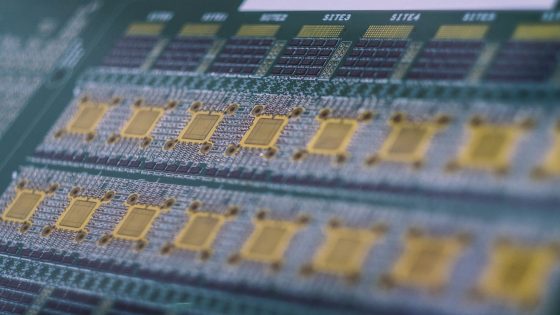Jefferies has identified a lesser-known and potentially undervalued Taiwanese company poised to benefit from the growing artificial intelligence sector. The investment bank said Insyde Software, listed on the Taipei Exchange, is well positioned to capitalize on the increasing demand for AI-enabled personal computers and servers. Investors are typically able to trade the Taiwan-listed stocks through international brokers, such as Interactive Brokers. Jefferies initiated coverage of Insyde with a research note titled “Firmware Leader and Yet-to-be Discovered AI Play” on July 9 with a “Buy” rating and a price target that suggests a potential 42% upside from current levels. However, the stock has already risen by more than 30% since the ratings action, according to FactSet data, which shows the stock currently offers 17% upside potential. The stock has risen by 101% in 2024, and is up by more than 1,500% over the past five years, FactSet data indicates. Founded in 1998, Insyde has established itself in the firmware industry, commanding over 50% market share in the personal computer segment, Jefferies suggests. Firmware is software embedded in hardware, which enables higher-level software â such as operating systems like Microsoft Windows or Linux â to operate with hardware components. Insyde’s success stems from its early adoption of Unified Extensible Firmware Interface (UEFI) technology, which has largely replaced legacy Basic Input/Output System (BIOS) systems. The company’s “tight partnerships with top chip designers” such as Nvidia, Arm, Qualcomm, Intel, and Taiwan-headquartered ASPEED, as well as prominent original equipment manufacturers like Dell and HP, have also helped it succeed, according to Jefferies. “Amid rising AI PC/ servers globally, Insyde is well-positioned to capture the significant AI tailwind, driving 20% [compounded annual sales growth estimate until 2030],” said Jefferies analysts led by Matt Ma in a note to clients on July 9. However, Jefferies added that, despite the company’s long history in technology and several partnerships, the stock’s “limited sell-side coverage likely means the stock has yet to be discovered.” The investment bank expects the personal computer BIOS sector as a whole to grow at a 14% compound annual growth rate from 2023 to 2030. The bank’s analysts also hold that Insyde’s royalty-based business model is another factor contributing to its appeal. The company charges a fee for each device using its firmware, creating significant economies of scale as client shipments increase. This model has allowed Insyde to maintain gross margins above 70% and steadily improve net margins, as shown by the company’s earnings over the past decade. â CNBC’s Michael Bloom contributed reporting.
Source Agencies


